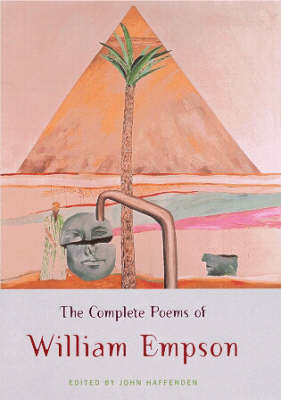Empson's poetry occupies a central place in 20th century literature. Acclaimed as the author of "Seven types of ambiguity" (1930). William Empson was applauded also for the dazzling intelligence and emotional passion of his poems. T.S. Eliot praised the "brain power" and "intense feeling" of his poetry; F.R. Leavis hailed him as the first true successor to John Donne. Other writers as diverse as W.B. Yeats, Dylan Thomas and John Betjeman have admired his elegant, humane and moving work. Robert Lowell told Empson: "I think you are the most intelligent poet writing in our language and perhaps the best. I put you with Hardy and Graves and Auden and Philip Larkin" The poems have a wide range of themes, from metaphysics to melancholy, social climbing to political satire and love to loss. Above all, Empson was stimulated by the the implications of modern science, which he called "the only fertile part of the contemporary mind". His witty and argumentative poetry reflects on the "strangeness of the world", and on the conflicting problems of conduct and belief.
This volume brings together for the first time all of the poems Empson published in his lifetime and several more discovered since his death. Drawing on published papers, interviews views, readings and broadcasts, John Haffenden's introduction and annotations identify manuscript sources, allusions and intertexts. The volume also includes Empson's own notes, which he regarded as a vital complement to the poetry: "there is a portentous air about compact verses without notes," he remarked "like a seduction without conversation".
- ISBN10 0713992875
- ISBN13 9780713992878
- Publish Date 17 April 2000
- Publish Status Unknown
- Out of Print 7 August 2002
- Publish Country GB
- Publisher Penguin Books Ltd
- Imprint Allen Lane
- Format Hardcover
- Pages 512
- Language English
